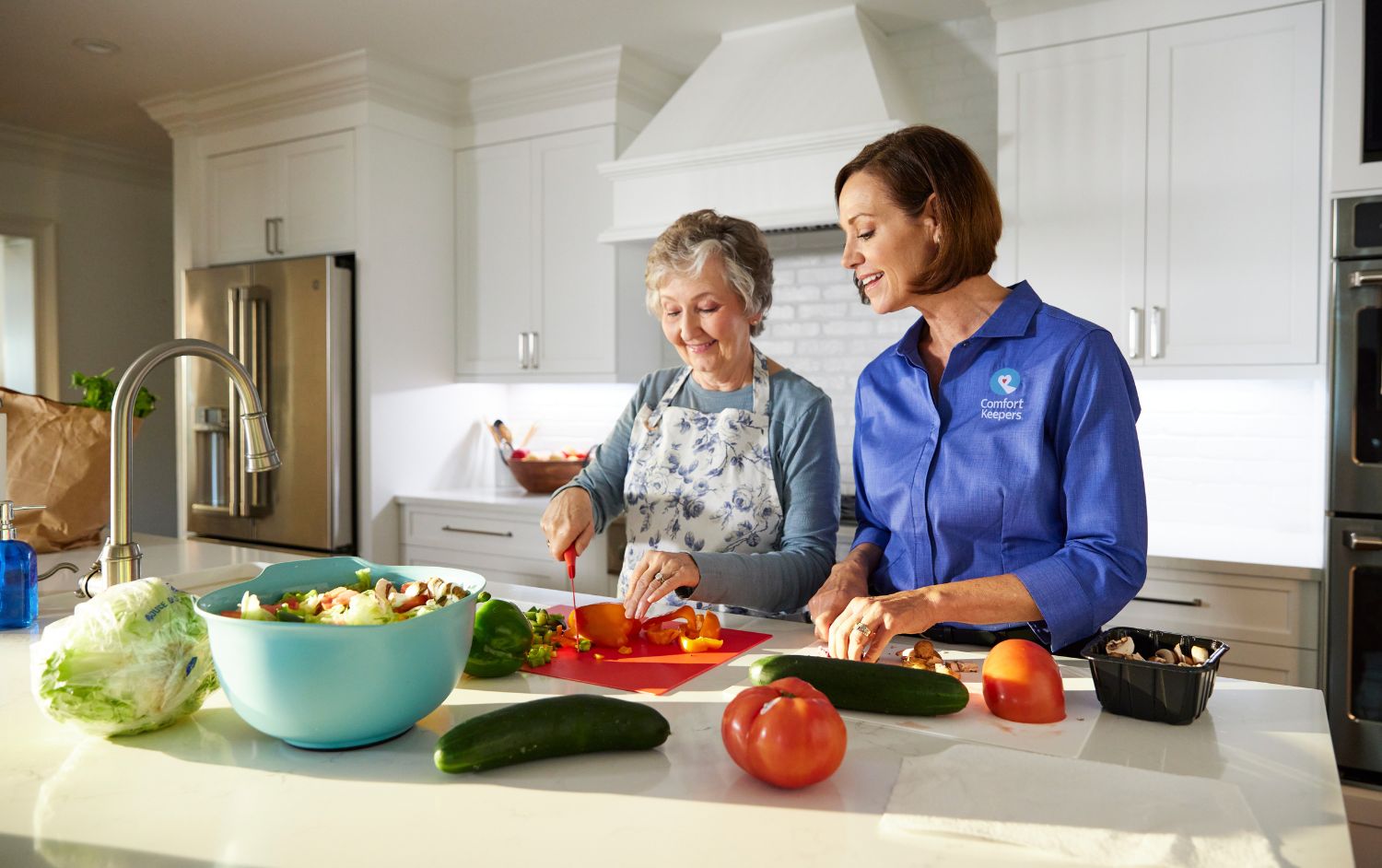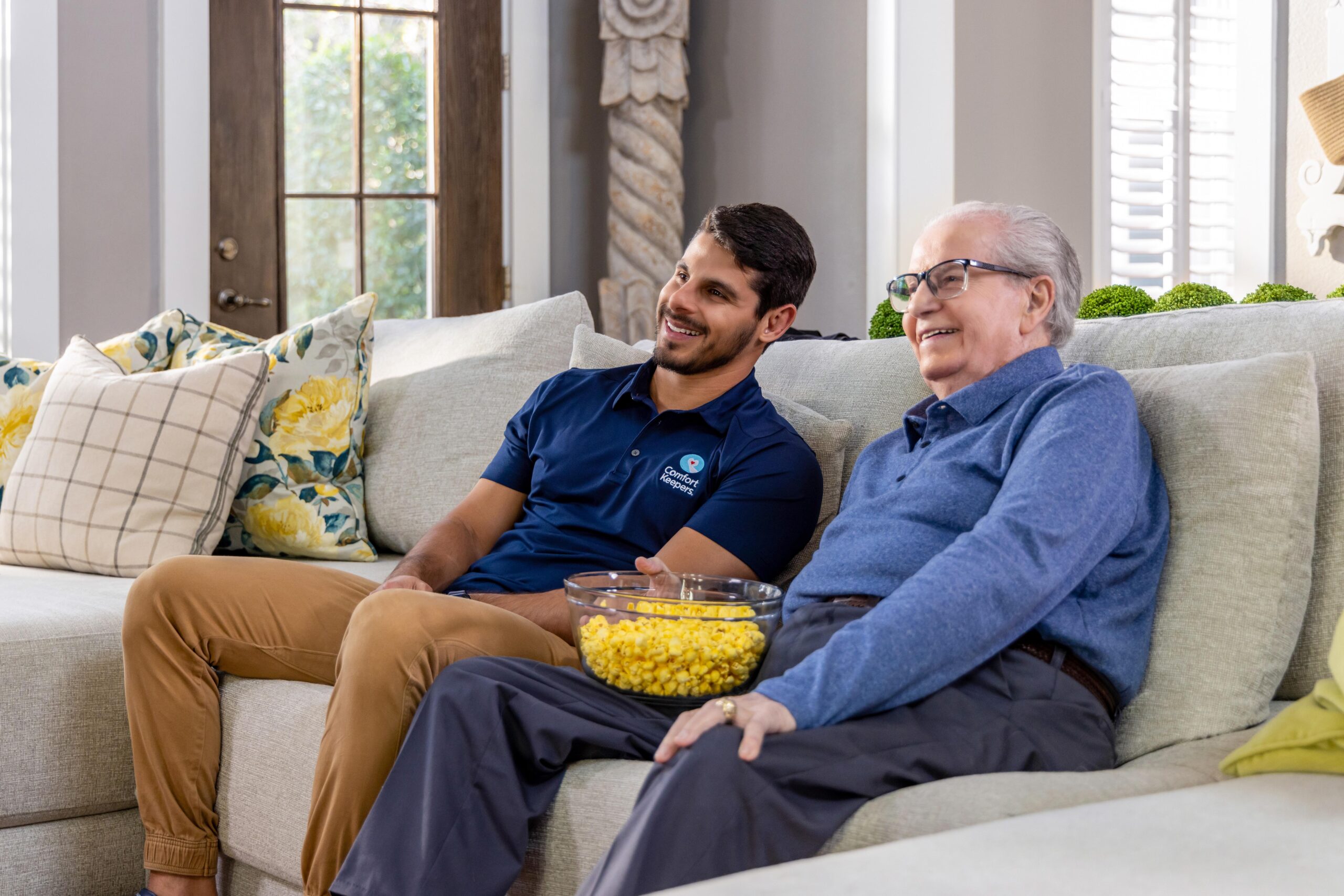What is the Difference Between a Companion and a Caregiver?
TriCities Senior Homecare | July 22, 2025
Understanding the distinctions between a companion and a caregiver is essential for families seeking the right support for aging loved ones or individuals with special needs. While both roles play a part in enhancing well-being and independence at home, the scope of services, training requirements, and focus areas make them fundamentally different.
Key Differences at a Glance
| Aspect | Companion Care | Caregiver (Personal Care Assistant) |
| Primary Focus | Socialization, emotional well-being | Physical health, personal and medical care |
| Duties | Non-medical help & companionship | Personal care, minor medical assistance |
| Training | Minimal or no formal training required | Formal training, certifications often needed |
| Best For | Those needing social support and safety | Those requiring hands-on daily or medical help |
| Typical Tasks | Conversation, light housekeeping, errands | Bathing, dressing, medication, mobility |
What Does a Companion Do?
A companion is primarily there to provide emotional support, friendship, and non-medical assistance. Their presence helps reduce loneliness, maintain routine, and support a positive mental state. Typical activities include:
- Socializing: chatting, playing games, joining in hobbies
- Meal planning and light meal preparation
- Light housekeeping and laundry
- Running errands or accompanying the individual to appointments
- Providing transportation for non-medical outings
Who Benefits Most:
Companions are ideal for seniors or adults who are relatively independent but may feel isolated, need oversight for safety, or require a little extra help managing day-to-day tasks that don’t involve personal or medical care.
Training & Regulation:
Companion roles typically do not require formal training or certification. The most important attributes are a good personality match, patience, and the ability to provide emotional support.
What Does a Caregiver Do?
A caregiver (sometimes called a personal care assistant or home health aide) provides hands-on assistance with personal care and may perform certain health-related tasks.
They are often trained or certified to handle:
- Bathing, dressing, grooming, and toileting
- Feeding, mobility assistance, and transferring
- Medication reminders or administration, monitoring vital signs
- Assisting with prescribed exercises or minor wound care
- Scheduling and accompanying to medical appointments
- Light housekeeping and meal preparation (may overlap with companion duties)
- Providing friendship and emotional support as needed
Who Benefits Most:
Caregivers are a better fit for people who need help with activities of daily living (ADLs), have health conditions, disabilities, or chronic illnesses that require regular monitoring or physical assistance.
Training & Regulation:
Caregivers generally must complete formal training—often a state-approved program—and may be certified or licensed (requirements vary by state). This ensures they are equipped to provide safe, effective personal and minor health care.
When to Choose a Companion vs. Caregiver
- Choose a companion if the primary needs are social engagement, a watchful eye for safety, and help with light chores, but not hands-on personal or medical care.
- Choose a caregiver if physical care, medication assistance, mobility help, or any health-related needs are present.
Situations Often Change:
Health and support needs can increase over time. Families sometimes start with a companion and transition to a caregiver as requirements become more complex.
Expert Insights
- Companions combat social isolation, which is linked to better mental health among seniors.
- Caregivers help maintain independence by supporting daily functioning and managing medical or mobility challenges, which may also help reduce hospitalizations and healthcare costs.
By matching the support role to the individual’s unique situation, families can help loved ones maintain dignity, comfort, and the highest possible quality of life at home.
Individualized Home Care Options
Long-Term Home Care, 24 Hour Home Care & Short Term Care Options Customized for You






